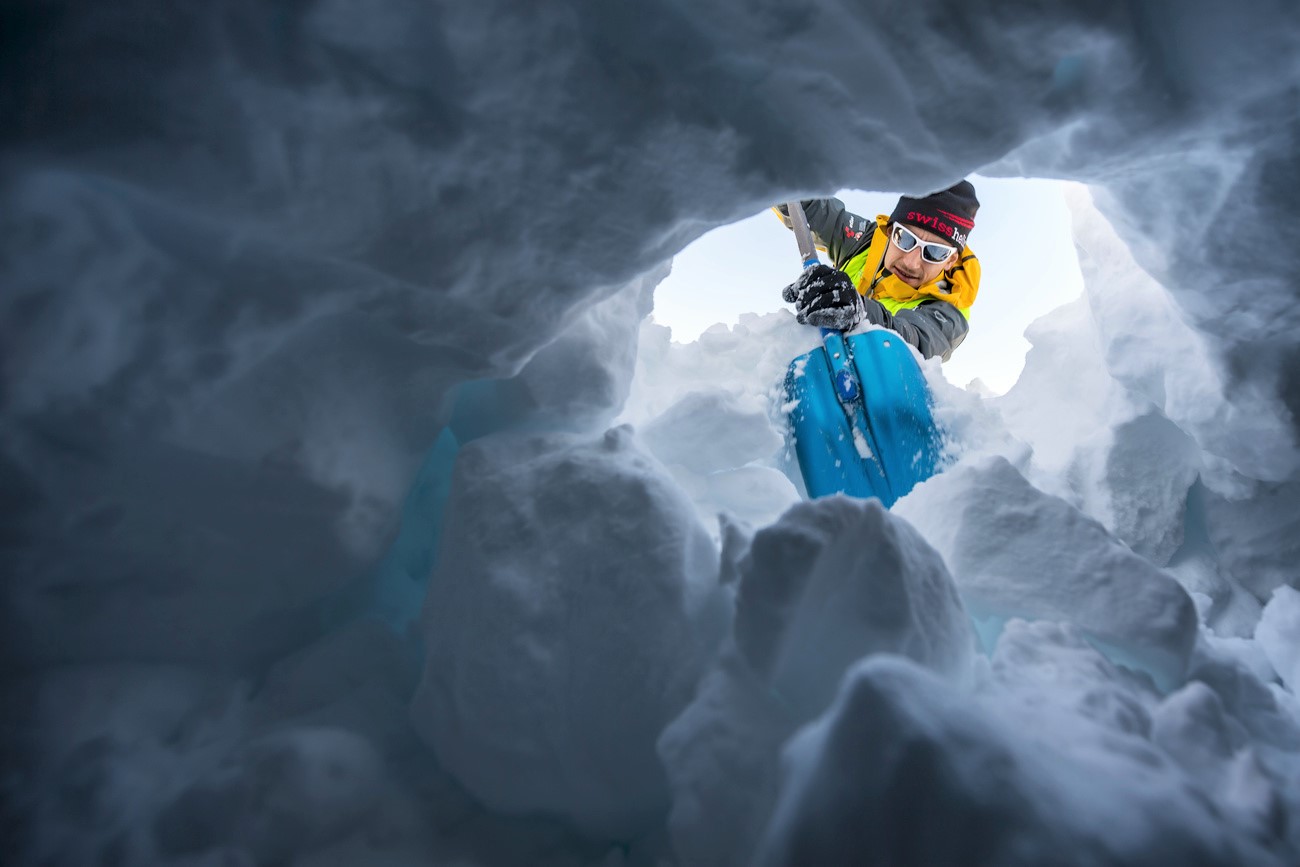
Avalanche forecasters train AI to help predict risks

The Swiss Institute for Snow and Avalanche Research SLF has trained a computer programme to churn out avalanche forecasts which are just as accurate as those written by human forecasters.
The artificial intelligence (AI) tool, trained with two decades-worth of weather and forecast data, has been used as a “second opinion” by professional forecasters since last winter, SLF said this weekExternal link.
Normally, three experts at the institute spend the morning independently examining weather and observational data before writing an assessment in the afternoon, forecasting the risks for the following day. Now, they also compare their forecasts with the AI-generated outlook, and adapt if necessary.
In many cases the human and machine predictions match, but sometimes there are variations. “The computer analyses the data in a different way than we do. That’s why it occasionally arrives at a slightly different conclusion,” said forecaster Frank Techel, a joint author of a paper on the technology published this weekExternal link in the journal Natural Hazards and Earth Systems Sciences.
The researchers say the prediction accuracy of the model is 75%, which corresponds to the reliability of an experienced human forecaster. As such, they plan to continue consulting it in the future, and also want to develop it further – at the moment, it can only predict dry-snow avalanches, but not (yet) wet-snow avalanches and snowpack stability.
Since 1936, some 2,000 people have died in avalanches in Switzerland; 24 die on average every year.

More
Avalanches: looming danger in the Swiss Alps

In compliance with the JTI standards
More: SWI swissinfo.ch certified by the Journalism Trust Initiative


























You can find an overview of ongoing debates with our journalists here . Please join us!
If you want to start a conversation about a topic raised in this article or want to report factual errors, email us at english@swissinfo.ch.